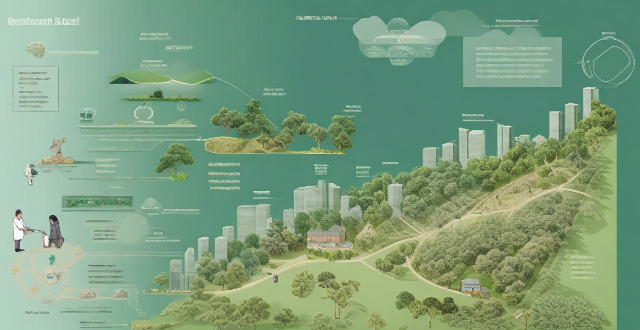The main causes of climate change include both natural factors and human activities. Natural causes such as solar variability, volcanic eruptions, and orbital changes have influenced Earth's climate in the past but are not responsible for current global warming trends. Human activities, including greenhouse gas emissions from burning fossil fuels, deforestation, industrial processes, agricultural practices, and urbanization with increased transportation needs, are the primary drivers of recent global warming. Addressing these human-induced factors is essential to mitigate further climate change impacts.

Main Causes of Climate Change
Climate change is a complex and multifaceted issue that has far-reaching implications for our planet. The main causes of climate change can be broadly categorized into two types: natural causes and human activities.
Natural Causes
Solar Variability
The sun's output varies over time, which can affect the Earth's climate. However, scientists believe that these variations are not enough to explain the current rate of global warming.
Volcanic Eruptions
Large volcanic eruptions can release vast amounts of sulfur dioxide and other gases into the atmosphere, which can temporarily cool the planet by reflecting sunlight back into space. However, these effects are short-lived compared to the long-term impacts of human activities.
Orbital Changes
Changes in the Earth's orbit around the sun, as well as changes in the tilt of its axis, can cause fluctuations in temperature and climate patterns over thousands of years. These factors have contributed to past ice ages and warm periods but are not responsible for current global warming trends.
Human Activities
Greenhouse Gas Emissions
Human activities, particularly the burning of fossil fuels like coal, oil, and natural gas, release large amounts of greenhouse gases (GHGs) into the atmosphere. These gases trap heat from the sun, leading to a warming effect on the planet. Carbon dioxide (CO2), methane (CH4), and nitrous oxide (N2O) are the primary GHGs contributing to climate change.
Deforestation
Forests act as carbon sinks by absorbing CO2 from the atmosphere during photosynthesis. Deforestation reduces this capacity and also releases stored carbon when trees are burned or decompose. This process contributes significantly to increased atmospheric CO2 levels.
Industrial Processes
Industrial processes such as cement production and chemical manufacturing also release significant amounts of GHGs. Additionally, some industries produce fluorinated gases used in refrigeration and air conditioning systems, which have high global warming potential.
Agricultural Practices
Livestock farming generates methane emissions through enteric fermentation in animals' digestive systems. Rice paddies also produce methane due to anaerobic conditions created during their growth cycle. Nitrous oxide is released from soils through bacterial processes influenced by fertilizer use and crop management practices.
Urbanization and Transportation
As urban areas expand, more energy is consumed for transportation, buildings, and industry. Cars, trucks, buses, planes, and ships all burn fossil fuels, releasing CO2 into the atmosphere. Building operations often rely on fossil fuels for heating, cooling, and electricity generation.
In conclusion, while natural causes do play a role in climate change, it is widely accepted among scientists that human activities are the primary driver of recent global warming trends. Reducing our reliance on fossil fuels and implementing sustainable practices across various sectors will be crucial in mitigating further climate change impacts.